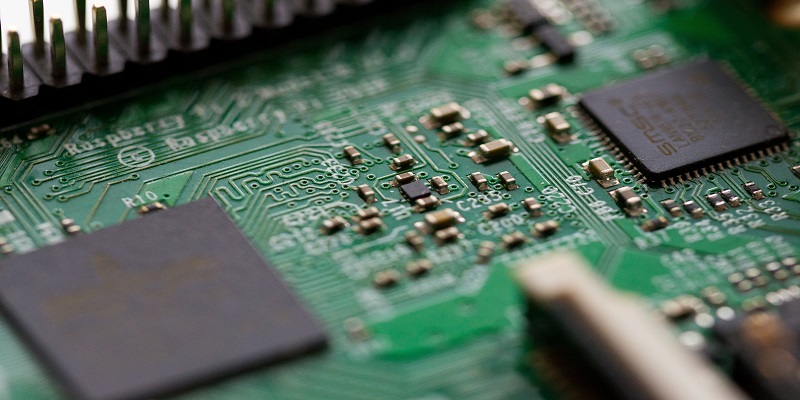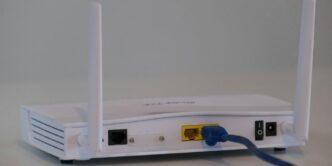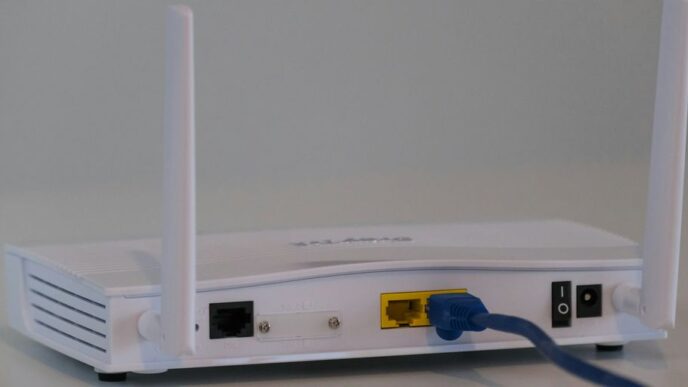As society hurtles into the future, propelled by rapid technological advancements, we are faced with a fundamental question: What happens when innovation and progress collide head-on with ethical concerns? Welcome to our exploration of the ethical implications of disruptive technology in today’s world. Buckle up as we navigate the labyrinthine maze that lies at the intersection between cutting-edge breakthroughs and societal values. From artificial intelligence to genetic engineering, join us on this thought-provoking journey where we uncover how these disruptive technologies are reshaping our lives – for better or worse – and delve deep into the moral quandaries they pose. Are you ready to embark on a mission of unraveling ethics in an ever-evolving digital landscape? Then let’s dive in.
Introduction: what is disruptive technology?
Some technologies have the potential to cause great harm or disruption to society. We call these “disruptive technologies.” Disruptive technologies can be anything from nuclear weapons to autonomous cars. They are technologies that have the potential to cause large-scale damage or even destroy society as we know it.
When a new technology comes along, it is often hard to predict how it will change society. But once a technology is widely adopted, it can be very difficult to stop its spread. This is why it’s important to think about the ethical implications of disruptive technology before it becomes too widespread.
There are many different ethical considerations that come into play when thinking about disruptive technology. For example, should we develop such technologies at all? If so, who should have access to them? And how should we deal with the inevitable disruptions that they will cause?
These are complex questions without easy answers. But they are important questions to consider, because the choices we make now could have a major impact on the future of humanity.
Short history of disruptive technology
Technologies that have the potential to disrupt society are nothing new. Throughout history, there have been many examples of technologies that have radically transformed social norms and structures. One of the most famous examples is the printing press, which ushered in a new era of communication and knowledge sharing.
In recent years, we have seen the rise of many new disruptive technologies, such as the internet, social media, and mobile devices. These technologies have had a profound impact on our lives, changing the way we communicate and interact with each other.
While these technologies have brought many benefits, they also come with some ethical implications. For example, the 24/7 connectivity that these technologies offer can lead to addiction and mental health problems. Additionally, the way that these technologies are designed can lead to increased surveillance of users by governments and corporations.
As we continue to develop new technologies, it is important to consider their potential implications for society. We need to make sure that we are creating technologies that will improve our lives in meaningful ways, without causing harm.
Ethical implications of disruptive technology
There is no doubt that disruptive technology has had a profound effect on society. However, with any new technology there are always ethical implications to consider. With disruptive technology, these implications are often magnified due to the rapid pace of change and the potential for widespread impact.
Some of the ethical implications of disruptive technology include:
- The potential for privacy invasion – as technology becomes more sophisticated, it can become easier for companies or individuals to collect data about our personal lives without our knowledge or consent. This raises serious questions about our right to privacy and how much control we have over our own personal data.
- The potential for job losses – as automation and artificial intelligence become more prevalent, there is a real risk that many jobs will simply disappear. This could lead to mass unemployment and untold social upheaval.
- The potential for increased inequality – as those who control the new technology reap the financial rewards, there is a danger that society will become increasingly unequal. This could create huge divisions between rich and poor and have a devastating impact on social cohesion.
These are just some of the ethical implications of disruptive technology. As society continues to grapple with the implications of this transformative force, it is important that we remain aware of the potential risks and challenges involved.
Privacy issues
There are many potential privacy issues that can arise from the use of disruptive technology in society. For example, if a new app were to become popular that allowed people to track the location of their friends and family members, there could be a lot of potential for abuse. People could use this app to stalk or harass others, and it could also be used to invade people’s privacy by revealing their whereabouts without their consent.
Another potential privacy issue that could arise from the use of disruptive technology is data security. If a new piece of technology were to become widely used that collected sensitive information about users (such as financial or medical data), there would be a risk that this information could be accessed by unauthorized persons. This could lead to identity theft, fraud, or other crimes.
Privacy concerns are just one of the many ethical implications that need to be considered when developing and using disruptive technology in society.
Economic inequality
The term “disruptive technology” has been used to describe a wide range of new technologies, from the personal computer and the internet to ride-sharing and self-driving cars. But what is disruptive technology, exactly? And what are its ethical implications?
Disruptive technology is defined as any new technology that has the potential to disrupt an existing market or industry. This can be due to the fact that the new technology is much cheaper or more efficient than the existing one, or because it offers a new and improved product or service that customers are willing to switch to.
Some examples of disruptive technologies include:
- The personal computer – Disrupted the typewriter industry by offering a cheaper and more efficient way to write documents.
- The internet – Disrupted many industries, including print media, by making information widely available online for free.
- Ride-sharing – Disrupted the taxi industry by providing a cheaper and more convenient way to get around cities.
- Self-driving cars – Have the potential to disrupt public transportation, as well as the automotive industry itself, by making it possible for people to hail autonomous vehicles instead of traditional taxis or buses.
The ethical implications of disruptive technology depend on how that particular technology is being used. For example, self-driving cars have the potential to greatly reduce traffic accidents and fatalities, but they also raise important questions about privacy and data security
Exploitation of labor force and labor market
The exploitation of labor force and labor market is one of the most important ethical implications of disruptive technology in society. With the ever-growing technological advancements, businesses are able to displace workers and restructure workforce requirements in a way that benefits them the most. This often leads to widespread unemployment and an increased exploitation of those who are employed.
While there are many advantages to disruptive technologies, such as increased efficiency and productivity, we must also be aware of the potential negative impacts they can have on our society. The exploitation of labor is just one of the many ethical implications we must consider when implementing new technologies.
Positive outcomes and potentials for the future
When looking at the potential implications of disruptive technology on society, it is important to consider both the positive and negative outcomes that could result. While there are certainly risks associated with implementing new technologies, there are also potential benefits that should be taken into account.
One of the most positive aspects of disruptive technology is the potential for it to improve efficiency and productivity in various industries. For example, autonomous vehicles have the potential to drastically reduce traffic congestion and increase safety on roads. Similarly, blockchain technology has the potential to streamline supply chains and make them more secure.
Another benefit of disruptive technology is that it can help to level the playing field between different parts of society. For instance, 3D printing technology is becoming increasingly accessible, which means that people from all walks of life can create products and start businesses without needing large amounts of capital. This democratization of manufacturing could lead to a more egalitarian society overall.
Of course, these are just some of the potential outcomes of disruptive technology – both positive and negative. It remains to be seen how society will ultimately be affected by these new technologies, but it is clear that they have the potential to significantly change the way we live and work.
Challenges that must be addressed for successful use of disruptive technology in society.
When implementing any new technology, there are always a number of challenges that must be addressed in order for it to be successfully adopted into society. When it comes to disruptive technology, this is doubly true – as not only do the challenges need to be overcome, but also the potential ethical implications of the technology need to be considered.
Some of the key challenges that must be addressed when introducing disruptive technology into society include:
- Ensuring that the technology is safe and reliable: This is always a paramount concern with any new technology, but even more so with disruptive technologies which have the potential to cause major disruption if they fail. Thorough testing and safety procedures need to be put in place before such technologies are introduced.
- Getting buy-in from key stakeholders: In order for disruptive technology to be successful, it often needs the support of key stakeholders such as government bodies, businesses or industry leaders. Without their backing, it can be difficult to get widespread adoption.
- Addressing public concerns: Any new technology will inevitably attract some level of public concern, but again this is amplified when it comes to disruptive technologies. It’s important to address these concerns head-on and try to allay any fears that people may have.
- Managing the change process: Disruptive technologies can cause major changes in how we live and work – and not everyone will embrace these changes willingly. Careful planning and management is needed in order to help people transition smoothly
Conclusion: Thoughts on the future of Disruptive Technology
As our world becomes increasingly digitized and interconnected, we must pay close attention to the ethical implications of the disruptive technologies that are rapidly changing our society. With the advent of powerful new technologies like artificial intelligence, nanotechnology, and synthetic biology, we have the opportunity to create amazing new products and services that can improve our lives in incredible ways. However, we also have the potential to cause great harm if these technologies are not used responsibly.
It is imperative that we think carefully about the implications of these new technologies before we allow them to proliferate in our society. We need to ask ourselves tough questions about how these technologies will be used, who will have access to them, and what unintended consequences could arise from their use. Only by having a thoughtful and open discussion about these issues can we hope to ensure that these technologies are used for good and not for harm.













